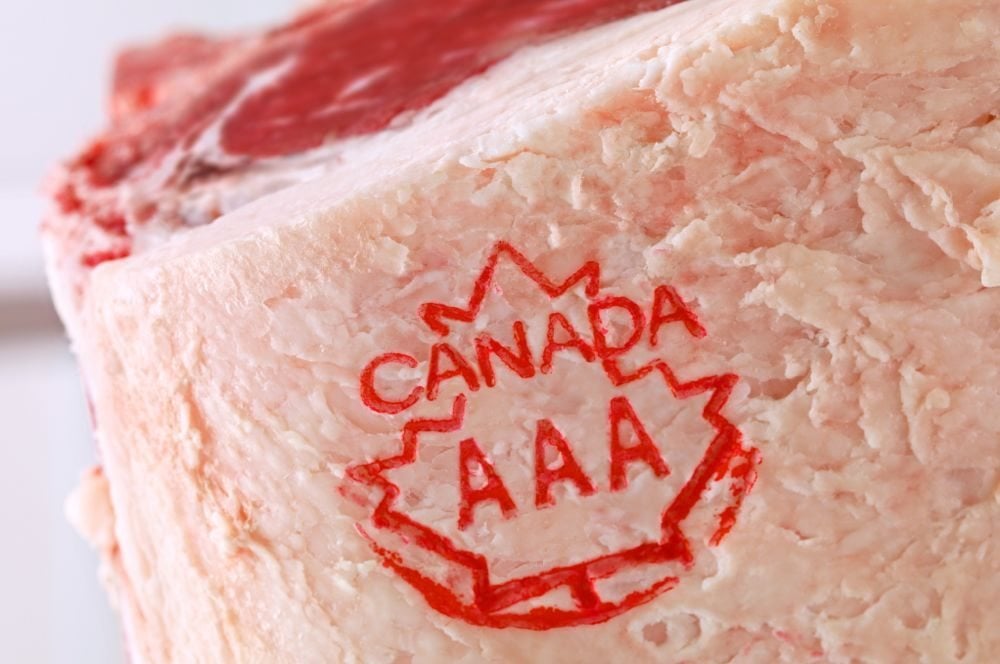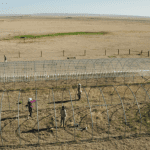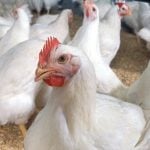July proved to be an active month on all fronts for the Canadian Cattlemen’s Association (CCA). CCA leadership met with Agriculture and Agri-Food Minister Lawrence MacAulay in Calgary, Alta., during his Growing Canadian Agriculture Tour. The tour enabled the minister to meet with farmers and agri-businesses and hear their ideas on how to capture growth opportunities for the sector. CCA had the opportunity to outline the beef industry’s role in growing Canada’s agri-food exports and discuss key industry issues and priorities with the minister directly.
The CCA was also on hand for the minister’s announcement of an investment of up to $14 million to the Beef Cattle Research Council (BCRC), under the Canadian Agricultural Partnership, AgriScience Clusters. The BCRC, a division of the CCA, will contribute up to an additional $7.6 million, for a total investment of up to $21 million.
Read Also

The Canadian Cattle Association’s international advocacy efforts
Global ag policies affect Canadian food policy, so the Canadian Cattle Association participates in international and domestic forums
Then McDonald’s Canada announced it will be the first company in Canada to serve Canadian beef from certified sustainable farms and ranches, using the Canadian Roundtable for Sustainable Beef’s Certified Sustainable Framework.
Prime Minister Justin Trudeau added five new ministers to his cabinet, announced three newly created portfolios and shuffled some ministers to different portfolios. Of note to the CCA is the move of Minister Jim Carr to the International Trade portfolio, now called International Trade Diversification.
Singapore became the third country to ratify the Comprehensive and Progressive Agreement for Trans-Pacific Partnership (CPTPP), following in the footsteps of Mexico and Japan. With just three additional member countries required to ratify the CPTPP to trigger the process to bring it into force, time is of the essence for Canada. Canada must be among the first six countries to ratify the landmark CPTPP if Canada’s beef and red meat and agricultural sectors are to have a leg up on competitors. The CPTPP will enter into force 60 days after six of the 11 signatories ratify the agreement. Countries not among the first six have to wait 60 days following notification to begin to benefit.
Newly appointed Minister Carr reiterated that Canada is on track to be among the first six countries. Canada introduced a ratification bill C79 in June just prior to commencing the parliamentary summer recess. It has had only first reading in the House and no action in the Senate. The CCA will continue to advocate that the government take swift action when Parliament resumes sitting in September.
These announcements are reason for optimism at a time when uncertainty continues to dog the North American and global trading environments. The governments of Canada, Mexico and the U.S. continue to show little commonality on when to resume the North American Free Trade Agreement (NAFTA) renegotiations.
Further, on July 1, the Government of Canada implemented tariffs on a list of items from the U.S., as a countermeasure to the U.S. tariffs on Canadian steel and aluminum imposed by the Trump administration in late May. Some prepared foods that have beef as an ingredient are on the final list of products that have applied a 10 per cent tariff.
Canada’s action is in retaliation for illegal U.S. tariffs on Canadian steel and aluminum and is co-ordinated with other countries including Mexico and the European Union.
The CCA supports the Government of Canada defending Canada’s overall interests against an illegal U.S. action. At the same time, we continue to communicate to policy makers in Ottawa that the Canadian beef sector is highly dependent on trade with the U.S. Actions to disrupt the integrated Canada-U.S. beef trade can be counterproductive to the interests of Canadian cattle producers.
The categories of U.S. beef products affected by Canada’s retaliatory import tariffs include products such as beef jerky, cooked meatloaf, meatballs, beef pies, stews, ground cooked beef, snack pack with meat, and mixed-meat TV-style dinners. Fresh and frozen unprocessed beef cuts and offal are not affected by the retaliatory import tariff. Certain processed products like beef sausages, corned beef or beef liver products are also not covered.
In terms of value of trade impacted, the category including beef jerky saw $170 million of imports from the U.S. to Canada in 2017 and the prepared meals category covered $42 million in 2017.
Devaluing any U.S. beef product can negatively affect the demand for Canadian cattle from which such products may have been produced. The two-way cattle and beef trade so far not affected by tariffs is approximately $4 billion. The CCA will continue to work with Canadian officials and U.S. allies to seek a positive path forward and avoid having further counter-retaliations escalate.
Later in July, at the federal/provincial/territorial agriculture ministers’ meeting in Vancouver, B.C., I had the opportunity to discuss key issues with agriculture leaders across the country that need to be addressed to ensure industry can meet the aggressive growth targets for the agri-food sector. Enabling such growth means addressing sector-specific bottlenecks, and for the beef cattle industry those include market access, innovation, business risk management programming and chronic labour woes.
These and other issues will no doubt be the topic of many conversations at the CCA semi-annual meeting later this month in London, Ont., in conjunction with the Canadian Beef Industry Conference. I’m looking forward to those discussions, and hope to see you there.
Until next time.
















